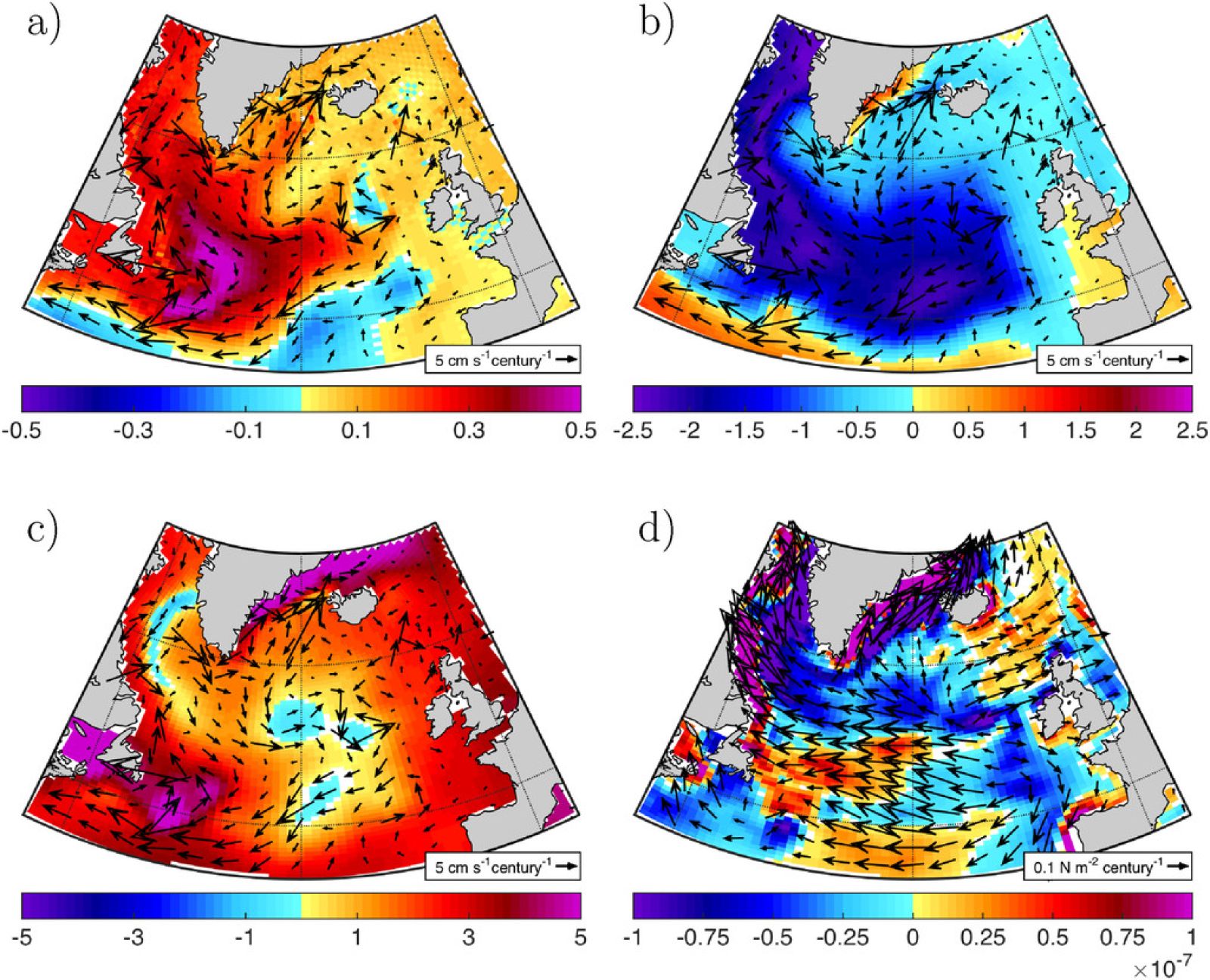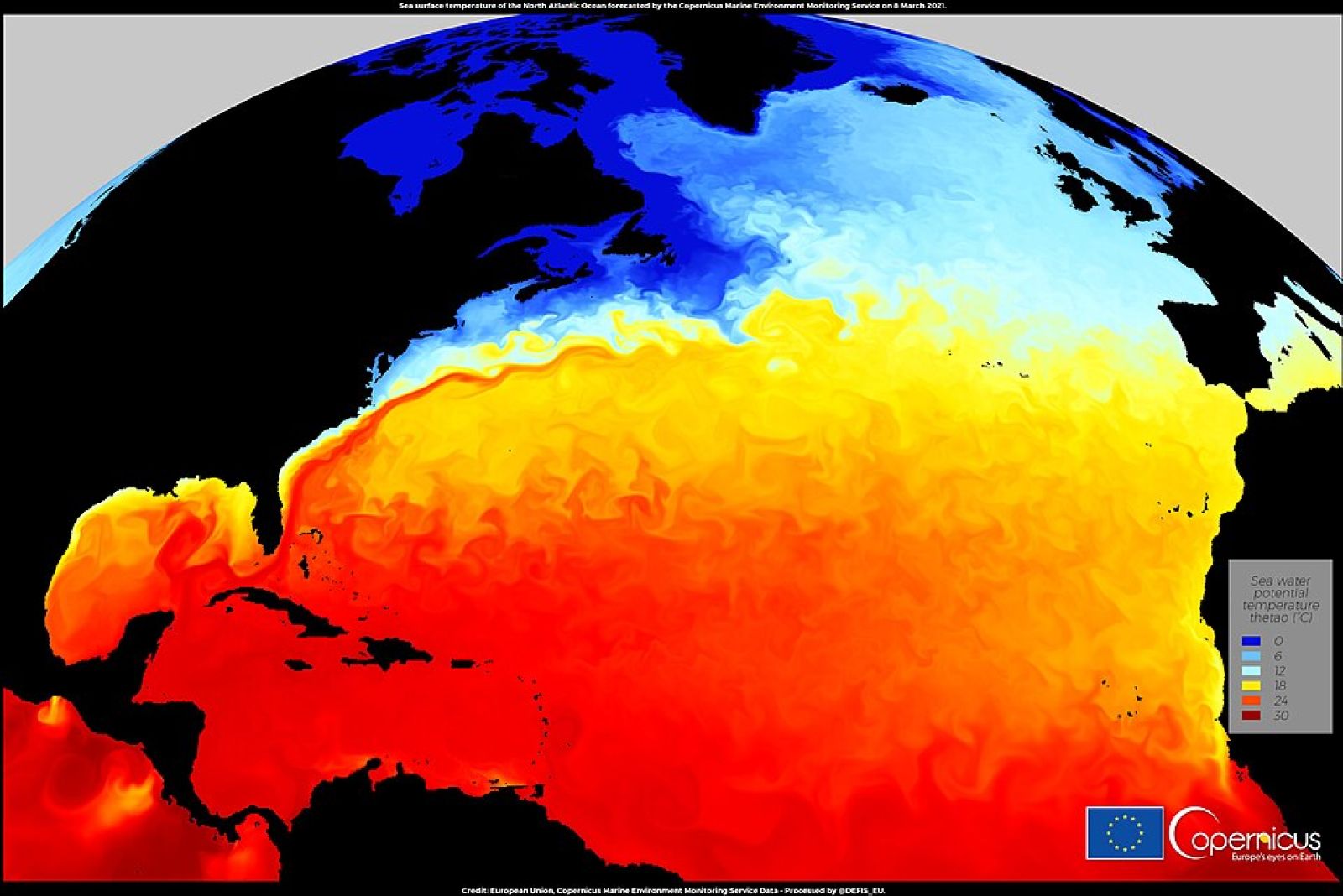What is this strange zone in the North Atlantic? 🌊
Follow us on Google News (click on ☆)
Researchers have explored several hypotheses to explain this 'warming hole.' Among them are the influx of cold water from melting Arctic ice or the effect of atmospheric pollutants. However, a more concerning theory is emerging, linked to a slowdown of ocean currents essential for global climate.
The system of Atlantic currents, known as the Atlantic Meridional Overturning Circulation (AMOC), is crucial for redistributing heat across the planet. Its weakening could have dramatic consequences, particularly on temperatures in Europe and sea levels along the U.S. East Coast.
Scientists rely on indirect clues to study the AMOC, as direct measurements only date back to 2004. These climate 'fingerprints' reveal sometimes contradictory trends, complicating the assessment of the current state of the currents.
A significant weakening of the AMOC could alter global climate patterns, affecting monsoons and tropical ecosystems. Research suggests these changes could be irreversible and costly, both economically and environmentally.
Scientists are searching for early warning signals to anticipate major shifts in the AMOC. Among these indicators, water salinity near South Africa appears promising for predicting future disruptions in the currents.

a) Mean trend (2010–2099) of sea level (SSH, in meters per century) and surface current velocity (vectors, in cm/s per century).
b) Trend of surface salinity (SSS, in meters per century) and surface currents (vectors).
c) Trend of sea surface temperature (SST, in °C per century) and surface currents (vectors).
d) Trend of wind stress (vectors, in N/m² per century) and wind stress curl (coloring, in N/m³ per century). Only trends significant at 95% are shown in color.
Faced with uncertainty, experts emphasize the urgency of reducing CO2 emissions to limit global warming. The possibility of a tipping point for the AMOC reinforces the need to act quickly to preserve the global climate system.
What is the AMOC and why is it important?
The AMOC, or Atlantic Meridional Overturning Circulation, is a system of ocean currents that transports heat from the tropics to the Northern Hemisphere. It plays a key role in regulating global climate, influencing temperatures and precipitation.
This system functions like a giant conveyor belt, with warm surface waters moving northward and cold, salty waters sinking to the depths and returning south. This movement is essential for maintaining the current climate balance.
A weakening of the AMOC could lead to harsher winters in Northern Europe and rising sea levels along the U.S. East Coast. These changes would have profound impacts on ecosystems and human societies.
Scientists are closely monitoring the AMOC, as its state is a key indicator of the health of our climate system. Understanding its mechanisms is crucial for anticipating future climate changes.
How does melting ice affect ocean currents?
The accelerated melting of Greenland and Arctic ice releases large amounts of freshwater into the North Atlantic. This freshwater reduces the salinity of surface waters, making them less dense and less likely to sink to the depths.
This process disrupts the sinking mechanism of waters, essential to the functioning of the AMOC. Without this movement, the current system could slow or even stop, with unpredictable climate consequences.
Recent research shows this phenomenon is already underway, with signs of AMOC weakening observed in certain regions. This raises questions about the speed and scale of future changes.
Understanding these mechanisms is vital for developing adaptation and mitigation strategies in the face of climate change. Scientists continue to study these processes to better predict their impacts.
